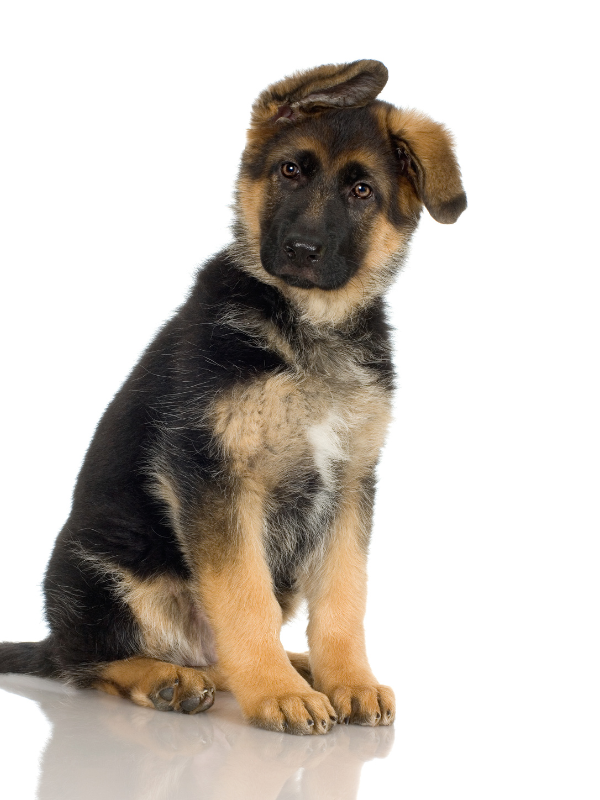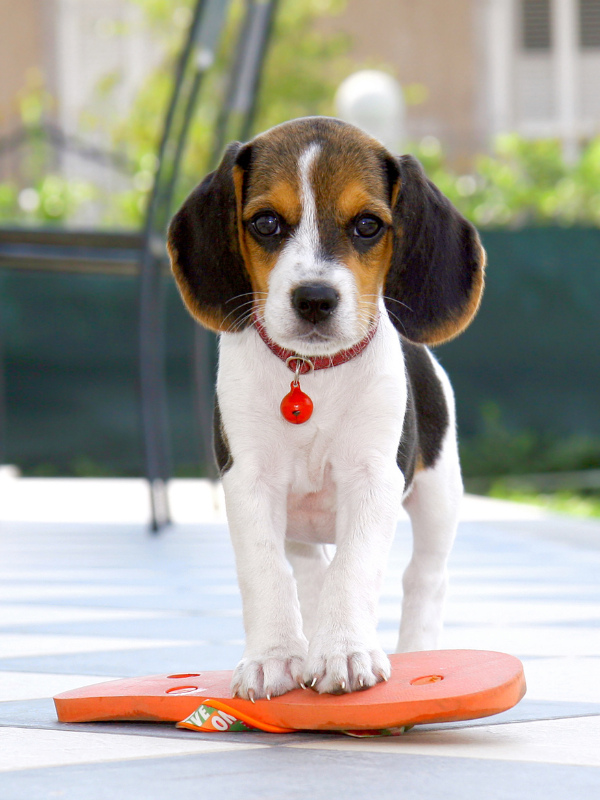737-215-3211

The Ultimate Guide to Raising a Happy and Healthy Puppy
Why raising a happy and healthy puppy matters
Bringing a new puppy into your life can be one of the most exciting experiences, but it also comes with great responsibility. As a pet owner, it's essential to ensure that your puppy is happy, healthy, and well-trained. A happy puppy is not only a joy to have around, but it's also more likely to grow up into a well-adjusted adult dog.
On the other hand, a puppy that is unhealthy, poorly trained, or unhappy can lead to numerous problems in the future, including behavioral issues and costly veterinary bills. This guide will provide you with everything you need to know to raise a happy and healthy puppy.

This guide is designed to help you navigate the various aspects of raising a puppy, including preparing for a new puppy, bringing your puppy home, feeding and nutrition, exercise and play, training and behavior, health and wellness, traveling with your puppy, advanced training, and activities. Each section will cover key information, tips, and advice on how to ensure your puppy is well-cared for and happy. Additionally, we've included some frequently asked questions that new puppy owners often have.
Preparing for a puppy
Deciding to get a puppy
Before bringing a new puppy home, it's essential to make sure that you're ready for the commitment. Puppies require a significant amount of time, attention, and resources. You'll need to be prepared to provide proper care and training, as well as enough exercise and socialization.
Choosing the right breed for your lifestyle
Choosing the right breed is crucial for ensuring a happy and healthy life for your puppy. Different breeds have different personality traits and requirements, so it's essential to research and choose a breed that fits your lifestyle and living situation.
Finding a reputable breeder or adoption agency
It's important to find a reputable breeder or adoption agency to ensure that you get a healthy and well-bred puppy. Research and ask for recommendations from friends and family, and ensure that the breeder or agency follows proper breeding and care standards.
Puppy-proofing your home
Puppy-proofing your home is crucial to ensure that your new puppy is safe and secure. This includes removing any potential hazards, securing loose items, and ensuring that all chemicals and medications are out of reach.
Bringing your puppy home

The first few days
The first few days are crucial for your puppy's adjustment to its new home. It's important to provide a comfortable and secure space, establish a routine, and give your puppy plenty of attention and socialization.
Introducing your puppy to other pets
Introducing your puppy to other pets can be a delicate process. Proper introductions and socialization can ensure that your puppy develops positive relationships with other animals.
Establishing a routine
Establishing a routine can help your puppy feel secure and comfortable in its new environment. This includes regular feeding, exercise, and playtime.
Potty training
Potty training is one of the most challenging aspects of raising a puppy. Consistency, positive reinforcement, and patience are key to successful potty training.
Feeding and nutrition
Choosing the right food
Choosing the right food is critical for your puppy's health and development. High-quality puppy food that meets nutritional standards is essential.
How much and how often to feed your puppy
The amount and frequency of feeding depend on your puppy's breed, age, and activity level. Consult with your veterinarian for personalized recommendations.
Treats and table scraps
Treats and table scraps should be given in moderation, and only as part of a balanced diet. High-calorie treats and human food can lead to obesity and health problems.
Exercise and play
The importance of exercise for puppies
Regular exercise is essential for a puppy's physical and mental well-being. Exercise can help prevent behavioral problems, promote socialization, and improve overall health.

Types of exercise for puppies
Puppies need a variety of exercise, including playtime, walks, and interactive games. It's important to provide age-appropriate exercise and avoid overexertion.
Playtime and socialization
Playtime and socialization are critical for a puppy's development. Proper socialization can help prevent fear and aggression, and ensure a well-adjusted adult dog.
Training and behavior
Basic commands and obedience training
Basic obedience training can help establish a strong bond between you and your puppy and prevent behavior problems. Consistency, positive reinforcement, and patience are key to successful training.
Crate training
Crate training can provide a safe and secure space for your puppy while preventing destructive behavior and aiding in potty training.
Dealing with common behavior problems
Common behavior problems in puppies include biting, chewing, and barking. Consistent training, positive reinforcement, and patience can help address these issues.
Positive reinforcement training techniques
Positive reinforcement training techniques can help establish a positive and trusting relationship between you and your puppy. Rewarding good behavior can promote obedience and prevent behavior problems.
Health and Wellness
Vaccinations and preventive care
Vaccinations and preventive care are crucial for your puppy's health and well-being. Regular check-ups and vaccinations can prevent serious diseases and health problems.
Parasite prevention and control
Parasite prevention and control can prevent serious health issues and discomfort for your puppy. Regular preventative measures such as flea and tick treatments are essential.
Common health issues in puppies
Common health issues in puppies include ear infections, diarrhea, and allergies. It's important to consult with your veterinarian if you notice any concerning symptoms.
Grooming and hygiene
Regular grooming and hygiene can help prevent skin and coat problems and promote a healthy and happy puppy. Brushing, bathing, and nail trimming are all essential aspects of grooming.
Traveling with your puppy
Car travel
Proper car travel preparation can ensure a safe and comfortable trip for your puppy. This includes securing your puppy in a carrier or harness and providing comfort items and frequent breaks.
Air travel
Air travel can be stressful for puppies, and it's essential to prepare and research airline regulations and requirements thoroughly.
Finding pet-friendly accommodations
When traveling with your puppy, it's important to find pet-friendly accommodations and plan for proper exercise and care.

Advanced training and activities
Advanced obedience training
Advanced obedience training can provide mental stimulation and enhance your puppy's training and socialization.
Agility training
Agility training can provide physical and mental stimulation and promote bonding and communication between you and your puppy.
Therapy dog training
Therapy dog training can provide an opportunity for your puppy to help others and provide emotional support.
Other fun activities for puppies
Other fun activities for puppies include hiking, swimming, and playing games like fetch and hide-and-seek.
Recap of key points
Raising a happy and healthy puppy requires commitment, patience, and love. It's essential to provide proper care, training, and socialization to ensure a well-adjusted and happy adult dog.
Final thoughts and tips
Remember to consult with your veterinarian for personalized advice and recommendations, and to always prioritize your puppy's health and well-being.
FAQs:
- What age should I bring my puppy home? Puppies should ideally stay with their mother and littermates until they are at least eight weeks old. This allows them to develop socialization skills and learn important behaviors from their mother and siblings.
- How often should I take my puppy to the vet? Puppies require frequent veterinary check-ups, vaccinations, and preventative care. Your veterinarian can provide personalized recommendations for your puppy's age and breed.
- Should I spay/neuter my puppy? Spaying or neutering your puppy can prevent health problems and behavioral issues in the future. It's important to discuss the benefits and risks with your veterinarian.
- How do I introduce my puppy to new people and pets? Proper socialization and introductions are crucial for a puppy's development. Introduce your puppy to new people and pets gradually and with positive reinforcement.
- How do I stop my puppy from biting and chewing everything? Consistent training, positive reinforcement, and providing appropriate chew toys can help prevent destructive chewing and biting behavior.
- Can I train my puppy on my own or should I hire a professional? It's possible to train your puppy on your own with proper research and guidance. However, hiring a professional trainer can provide personalized advice and ensure successful training.
- How do I know if my puppy is getting enough exercise? Consult with your veterinarian to ensure that your puppy is getting the appropriate amount and type of exercise for their age and breed.
- Can I give my puppy human food? Human food should be given in moderation and only as part of a balanced diet. Some human foods can be toxic to dogs and lead to health problems.
- How do I keep my puppy safe from parasites? Regular preventative measures such as flea and tick treatments, regular check-ups, and proper grooming can prevent parasite infestations.
- How do I choose the right toys for my puppy? Choose toys that are appropriate for your puppy's age and size, and provide a variety of textures and types to promote mental and physical stimulation.


Leave a comment